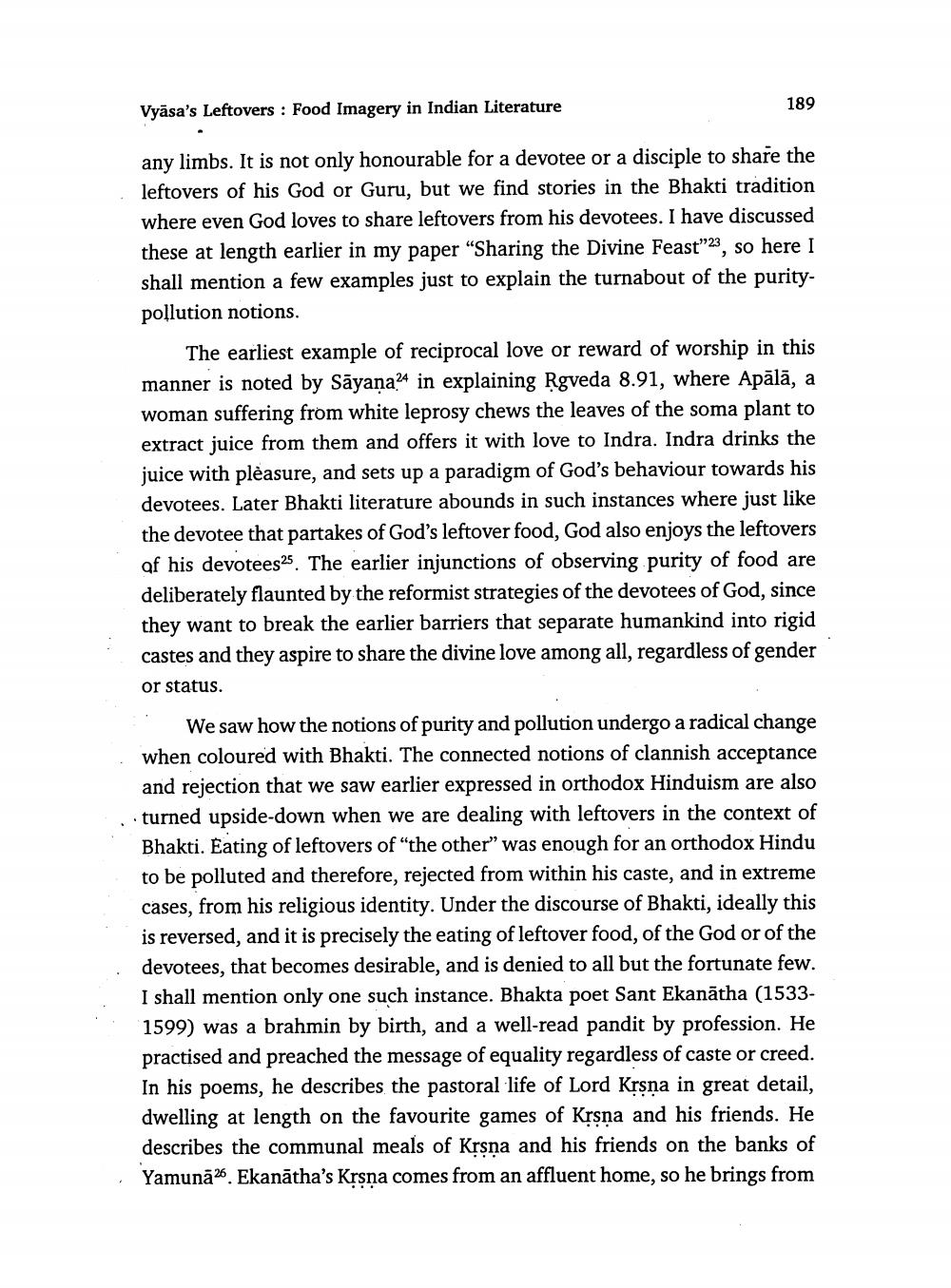________________
Vyāsa's Leftovers : Food Imagery in Indian Literature
189
any limbs. It is not only honourable for a devotee or a disciple to share the leftovers of his God or Guru, but we find stories in the Bhakti tradition where even God loves to share leftovers from his devotees. I have discussed these at length earlier in my paper “Sharing the Divine Feast”23, so here I shall mention a few examples just to explain the turnabout of the puritypollution notions.
The earliest example of reciprocal love or reward of worship in this manner is noted by Sāyana24 in explaining Rgveda 8.91, where Apālā, a woman suffering from white leprosy chews the leaves of the soma plant to extract juice from them and offers it with love to Indra. Indra drinks the juice with pleasure, and sets up a paradigm of God's behaviour towards his devotees. Later Bhakti literature abounds in such instances where just like the devotee that partakes of God's leftover food, God also enjoys the leftovers of his devotees25. The earlier injunctions of observing purity of food are deliberately flaunted by the reformist strategies of the devotees of God, since they want to break the earlier barriers that separate humankind into rigid castes and they aspire to share the divine love among all, regardless of gender or status.
We saw how the notions of purity and pollution undergo a radical change when coloured with Bhakti. The connected notions of clannish acceptance and rejection that we saw earlier expressed in orthodox Hinduism are also · turned upside-down when we are dealing with leftovers in the context of Bhakti. Eating of leftovers of “the other” was enough for an orthodox Hindu to be polluted and therefore, rejected from within his caste, and in extreme cases, from his religious identity. Under the discourse of Bhakti, ideally this is reversed, and it is precisely the eating of leftover food, of the God or of the devotees, that becomes desirable, and is denied to all but the fortunate few. I shall mention only one such instance. Bhakta poet Sant Ekanātha (15331599) was a brahmin by birth, and a well-read pandit by profession. He practised and preached the message of equality regardless of caste or creed. In his poems, he describes the pastoral life of Lord Krsna in great detail, dwelling at length on the favourite games of Krsna and his friends. He describes the communal meals of Krsna and his friends on the banks of Yamunā. Ekanātha's Krsna comes from an affluent home, so he brings from




